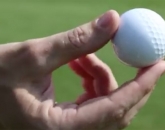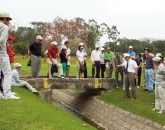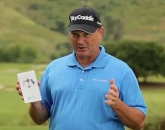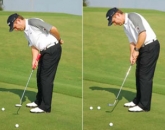ALCOHOL
In short, alcohol provides no benefit to your exercise performance. Alcohol is a depressant, acting immediately on the brain to decrease your psychomotor skills, slow your reaction time, decrease hand-eye coordination, hand steadiness, balance and alertness—a performance enhancing substance it is not! It also increases inflammation in the body, hastens the onset of muscle fatigue, interferes with muscle recovery, and diverts blood flow to your skin causing further dehydration. And with chronic consumption of the stuff, your liver accumulates fat, your body's ability to absorb essential vitamins and minerals is diminished, your testosterone levels decline (making it more difficult to keep muscle mass) and your cortisol (stress hormone) levels rise. Sober yet?
JUICE and SODA
While fruit juices and sodas can help contribute to your body's daily fluid needs, they are not the best choice for on-course hydration. They both contain a lot of sugar, which slows the rate of water absorption into the body. Also, the initial rush of sugar into your blood stream might give you a temporary energy boost, but after about an hour you'll then feel your energy crash down, as your body excretes insulin to balance out the blood sugar spike. It obviously isn't ideal to have such fluctuations over the course of a round, as your mood and focus will fluctuate along with your blood sugar levels.
How much is enough?
One easy way to judge whether you are well hydrated is to check the colour of your urine. It should be pale yellow, unless you are taking supplements which will darken it. You can also try weighing yourself before and after your round, and for every pound lost through sweat, drink about 2-3 cups of fluid.
Bottom line: drink up!
Pages
- « first
- ‹ previous
- 1
- 2
- 3
Click here to see the published article.











